I chained my phone to a wall for a week
The children (me) yearn for landlines.
In the age of chronic connectivity, every cultural critique reaches the same conclusion: “we’re glued to our phones! We’re slaves to the algorithm!” Well, in a fit of rage with my TikTok algorithm (don’t ask), I decided it was time I put my phone in its place. To sever ties with my phone by literally tying it up.
I see your dumb phones, screen time locks, BRICKs — I raise you a chain and limited battery life.
What I gave up: mobile access to my phone + unlimited battery
How did I cope: wore a watch, gave friends a heads up, read books
Did it suck: 100% would do it again
A couple weeks ago, work made everyone take slack off their phone. Security risks, they said. Without having to be on call everywhere, I asked myself — what else is tying me to my phone? What if, I created my own landline?
The concept is certainly not new. The Atlantic covered the resurgence of landlines in South Portland as a cutting edge way to get kids off their phones. A TikTok of someone making a phone dock went viral on Substack notes. CatGPT on Instagram is selling her own line (haha) of landlines.
My approach here is simple, more importantly, highly replicable: I’m allowed one full charge and my phone must remain chained to my bedroom wall for a week.
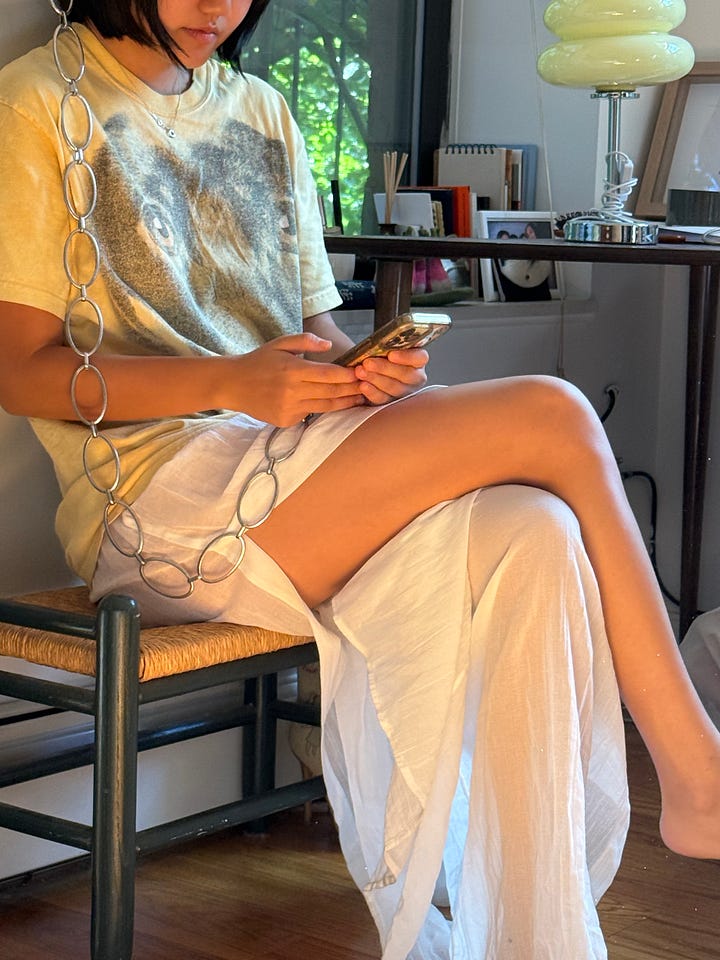
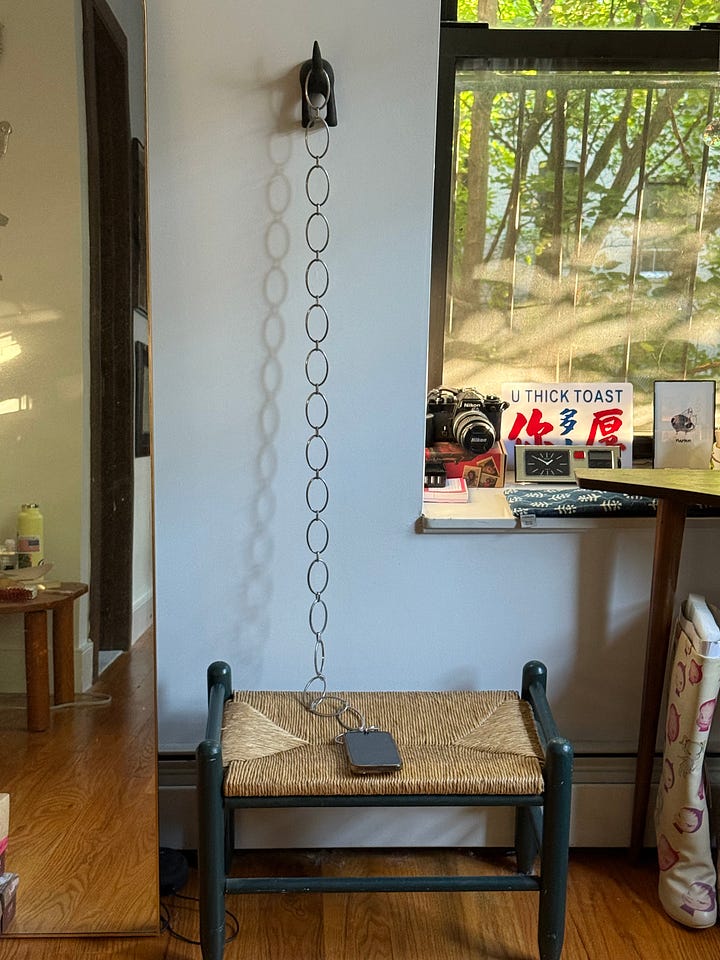
I am now learning the importance of stools and notepads being in close proximity to a landline
My withdrawals lasted a few hours. Phantom pings were the first to hit.
I’m not lying when I say I’d much rather leave my phone at home than quit social media. Resisting the urge to re-download TikTok when I had my phone was more difficult than forgetting about the temptation altogether. Out of sight, out of mind, right?
I didn’t expect how quickly I stopped thinking about checking my phone, especially considering how I am, to quote my friend Mendel, “extremely online, for someone writing a neo-luddite blog.”
Key observations
Strangers are kinder than you expect (I had to ask several pedestrians for the time and directions).
Doomscrolling only hits when you’re horizontal.
Some of your friends are gonna think you died at home.
Nothing quite compares to the rush of seeing all the notifications you’ve gotten that day all. at. once.
The iPhone battery lasts surprisingly long.
The entire experience felt like an episode of “Old Enough”
Old Enough is this fabulous Japanese game show where parents send toddlers on a simple task and a camera crew follows the slow meltdown of each toddler (it’s all safe, don’t worry). The show works because these kids are experiencing independence for the first time.
I, too, was experiencing independence for the first time this week — being without a device that told me where I was or how much time I had before I’d be late for my meeting.
Leaving my phone at home took me out of the race entirely.
I felt naked. Above all else, being unaware of the time sent me down a spiral of anxiety. Having my phone on me meant I knew exactly where I was. I was aware of real-time updates about pretty much anything. I was in complete control. Being disconnected —even just for a couple hours— made me feel like Jared Leto when he found out about the pandemic two weeks after his silent retreat. Is this why we so rarely lose track of time anymore?
In my post about printing my FYP I wrote about how our culture of hyper-connectivity made being online a hamster wheel of keeping up, how information is only relevant for the first few minutes it enters the public conversation, how checking your phone every 5 minutes instead of 2 sets you back. But how much of this so-called timely-content important anyway?
We thought we were cooked when the telegraph was invented
Back in 1854, Henry David Thoreau published Walden —his famous crash-out over the invention of the telegraph. Thoreau believed that the then-supercharged speed at which information was transmitted…
“… made relevance irrelevant. [Where] the abundant flow of information had very little or nothing to do with those to whom it was address; that is, with any social or intellectual context in which their lives were embedded.”
Mind you, this was back when the most heinous piece of “news” you could publish was coverage on Princess Adelaide’s whooping cough. Imagine if he knew about the popular compilations of babies experiencing hibachi for the first time (my favorite genre of TikTok).
Information today embodies that famous Coleridge line: “water, water, everywhere, nor any drop to drink.” If information derives importance from the possibilities of action, our phones are saline faucets that drown us in undrinkable sludge. To turn the faucet off, I suggest leaving your phone at home.
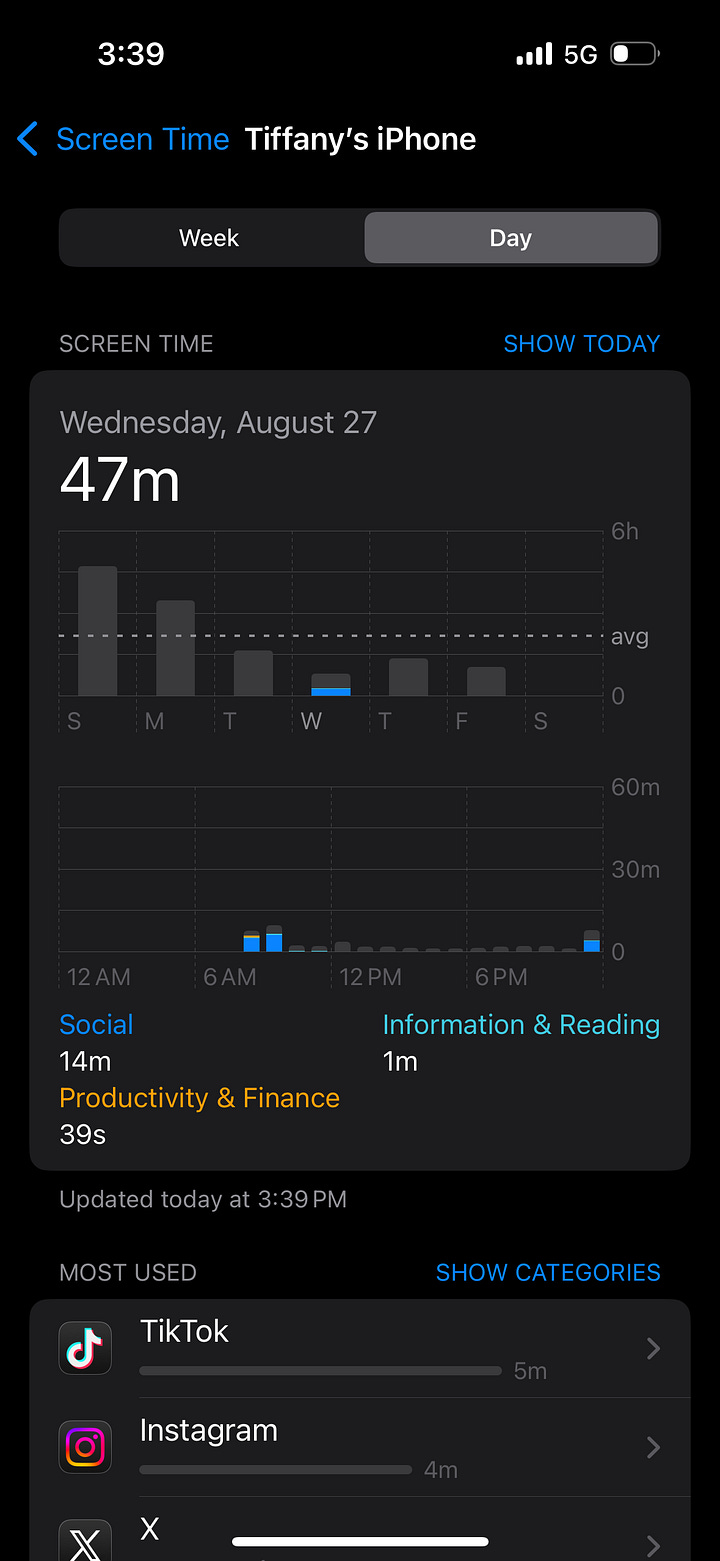
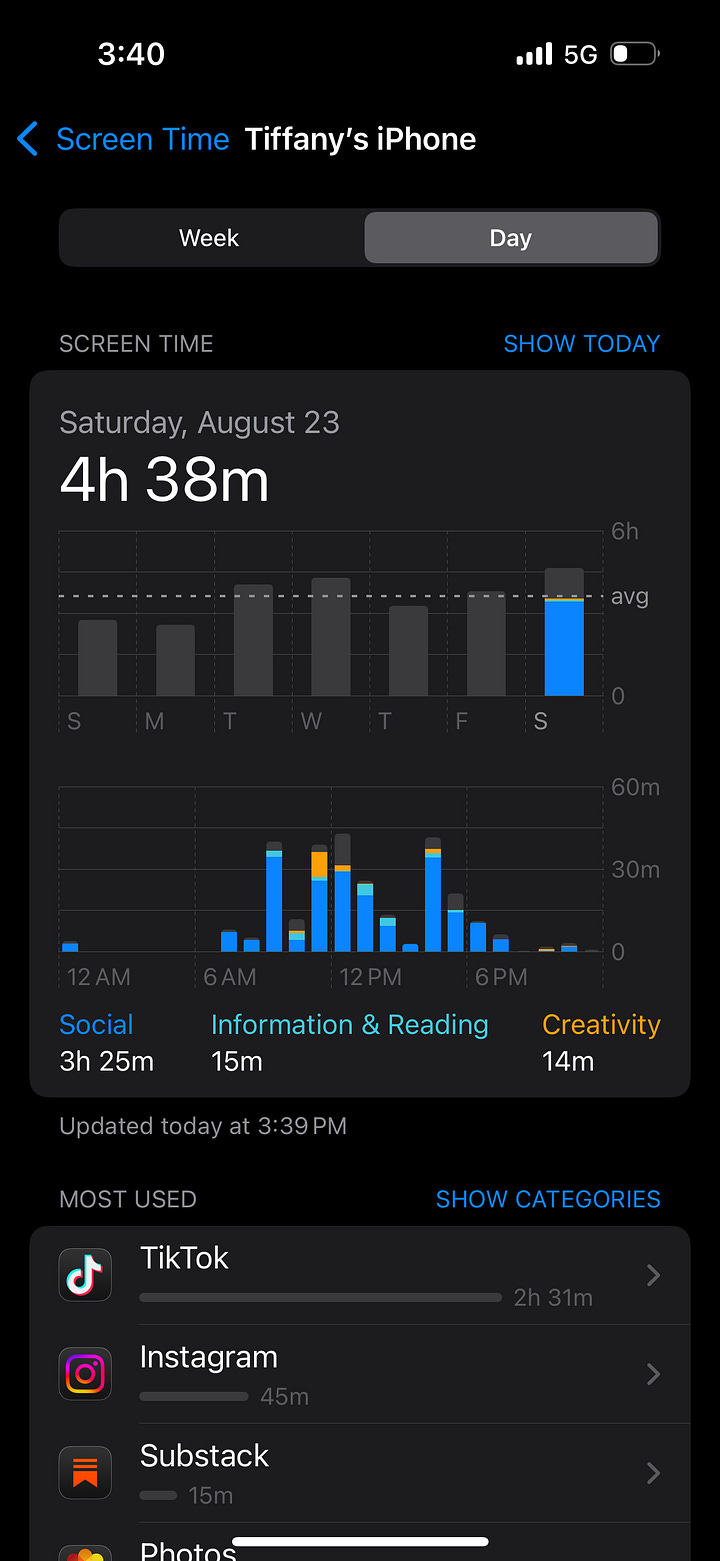
I discovered an underrated sense of peace that comes with being unreachable.
I felt confused glances my way when people on the subway realized I was unplugged. I didn’t have earphones in (no phone to play music). I wasn’t reading a book (forgot it at home). I was just twiddling my thumbs and people watching. I was looking up!
If the goal was to cut down my screen time, it worked exceptionally well. Because I had to manually check everything (log onto Instagram, email, slack on WEB VIEW), I quickly lost interest in staying up to date. If I wanted to micro-dose social media in between tasks at work, I had to take a beat and think: what do I want to check? Instead of scrolling on TikTok, getting sick of it, exiting the app only to immediately, subconsciously tap back in, I found myself abandoning my devices altogether.
Limited battery life == Minutes
Another key part of this exercise was my limited battery life. I didn’t let myself charge my phone because I wanted to manufacture the scarcity of minutes. In the era of landlines, you couldn’t just yap on end. Every aspect of my social life carried a little more weight. I couldn’t just cancel on a friend last minute (neither could they on me).
I had to ration my time on my phone, prioritize who I would text or call, quit all other running apps to conserve battery. I grew aware of when I was online and for how long.
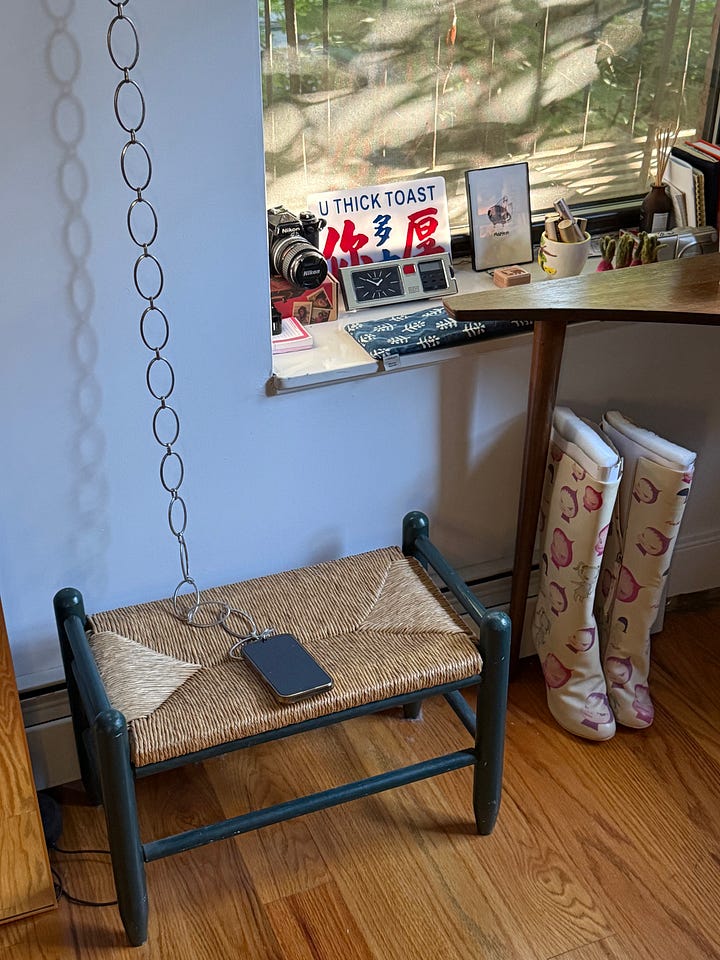
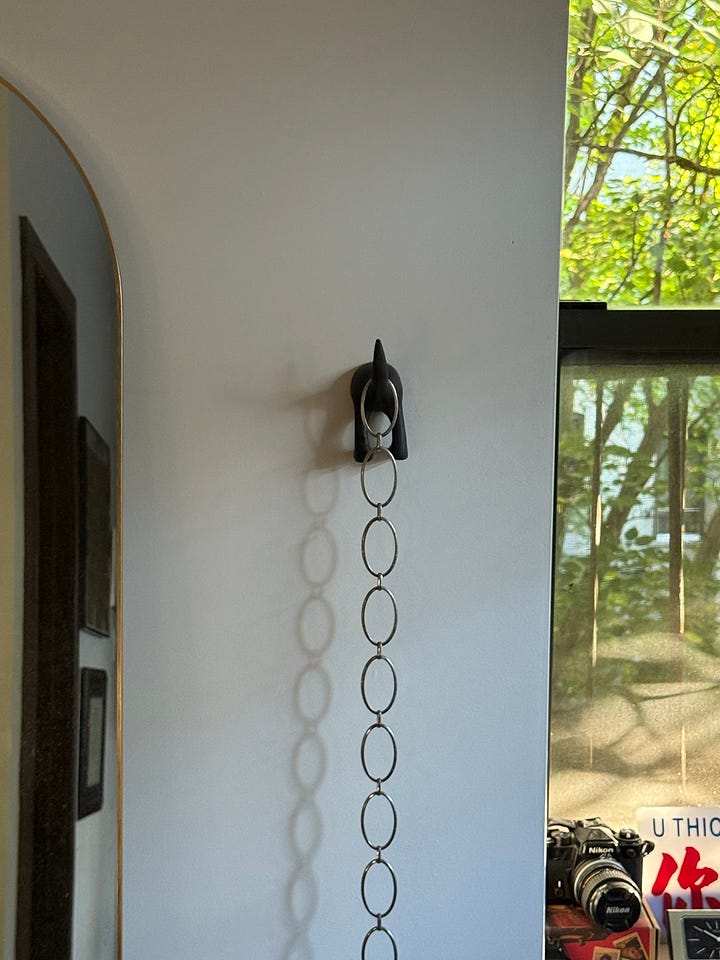
My friend said this project reminded her of when she had to drop her phone off at the genius bar for repairs for a couple hours.
I’ll tell you the same thing people say about diets, fighting alcoholism, even quitting nicotine: quitting cold turkey does! not! work!
My phone has always been an extension of my palm — an appendage. Spending a full week without it felt like exposure therapy. Repeat after me:
I don’t need my phone with me at all times.
I can survive without my phone.
I am okay.
Keeping my phone out of arms reach helped me forget all the little things I’m supposed to be worried about. It let me sit with my thoughts, feel the physical steps I was taking as I was crossing the street, notice my surroundings.
You can try all kinds of dark patterns to trick yourself into spending less time online, purchase new gadgets to protect your phone from yourself. But you could also just chain it up. I know it’s a little medieval, but who doesn’t love some drama?
Everything you need to try this yourself
A chain (or anything rope-like)
A watch (now programming it 5 mins early can actually get you to arrive on time)
A mini notepad + pen
A willingness to ask for help
Is one week too short? Should I go a whole month with a DIY landline? Let me know!



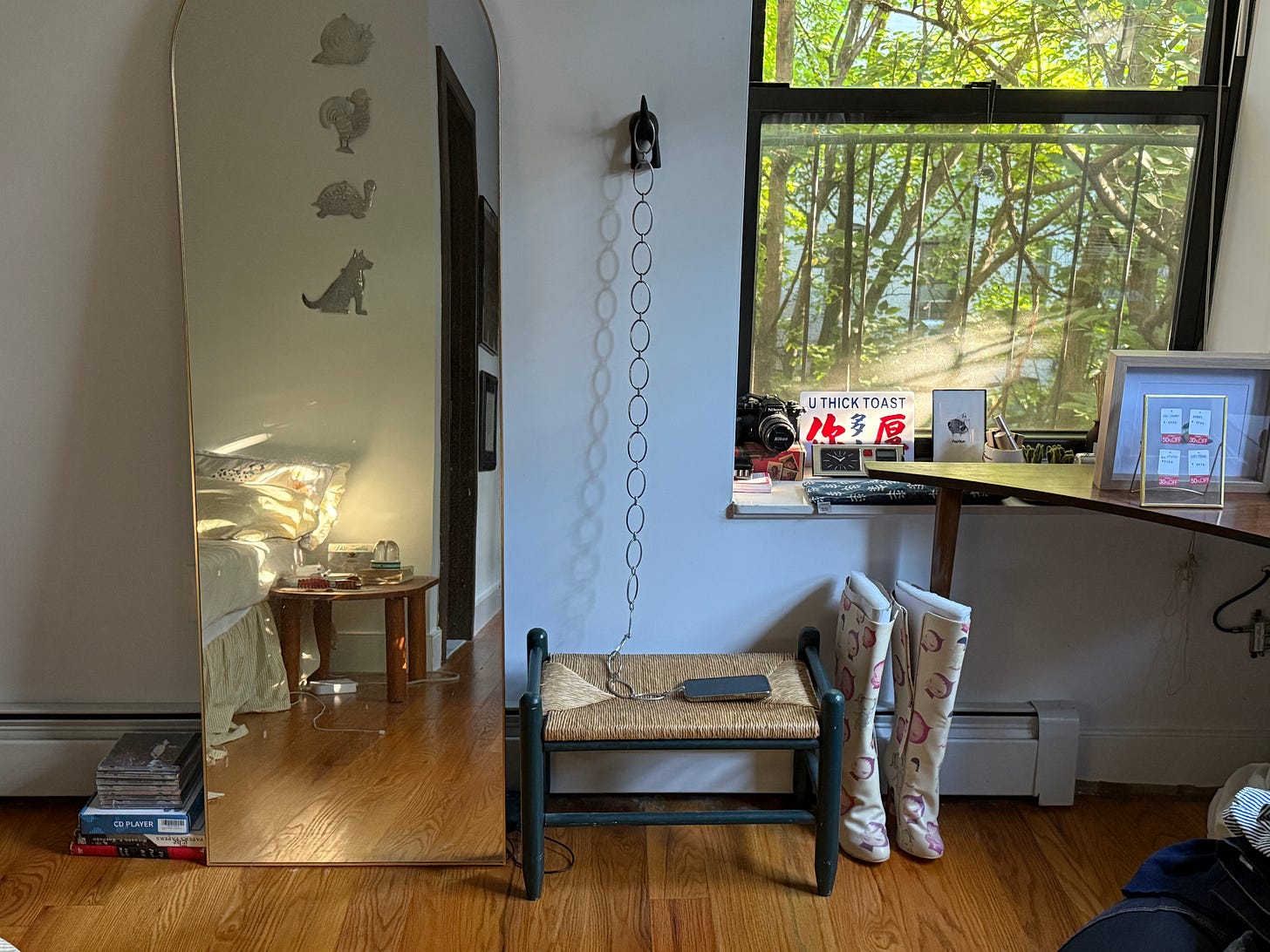

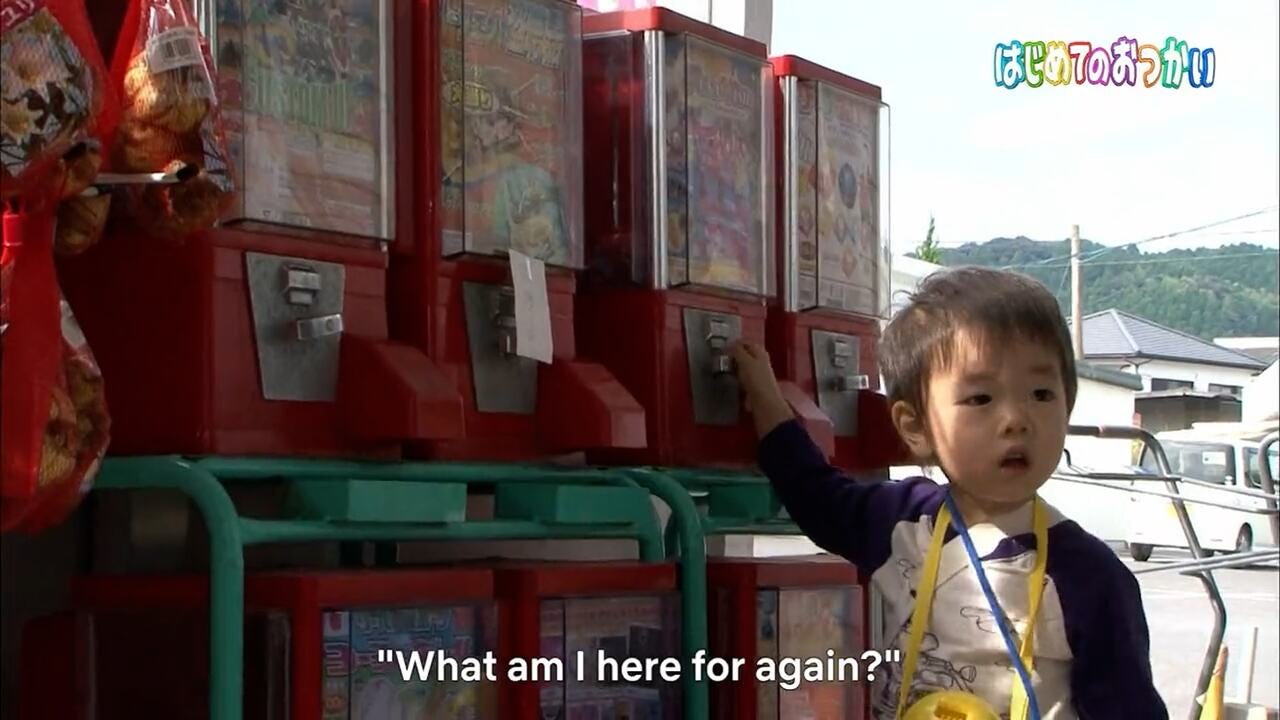
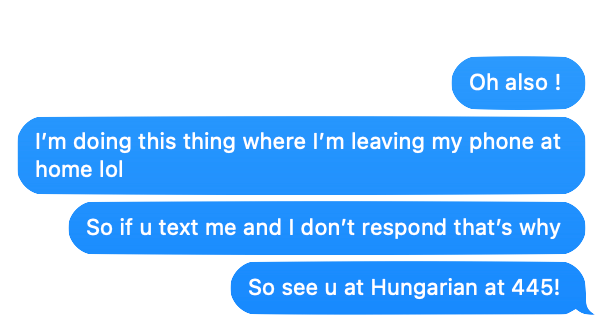
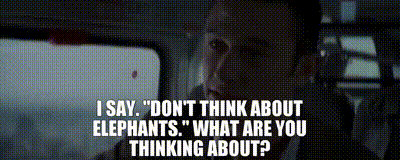
I have gone offline for 24 hours twice, and learned how everything is done on my phone. So I have since bought an alarm clock that plugs into the wall, a CD player, I actually got a landline phone so friends can reach me. When I was offline, I realized I had a big draw to go outside, whereas when I am online, I can hardly tear myself off the couch away from my screens. I'm so happy to find someone else wanting to be offline too.
Just discovered you and your blog thru a reel and have taken the great pleasure of reading a few articles :))) i am a fan!!